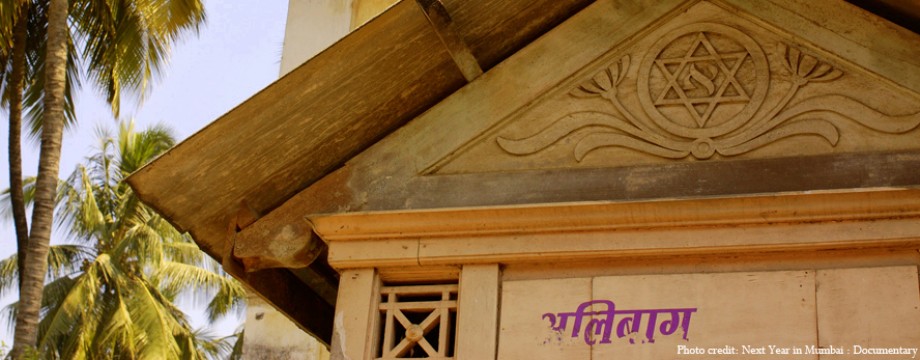In February 2006, Florence Ezekiel Nadira died in a Mumbai hospital. That same week, thousands of miles away in Melbourne, Danny Ben-Moshe chanced upon her obituary. The interest it sparked would drive an 11-year search and culminate in a documentary on Hindi cinema’s once-lauded — and since forgotten — Jewish celebrities.
Ben-Moshe, an adjunct professor at Melbourne’s Deakin University, is also a documentary filmmaker and recipient of the Walkley Award, Australia’s top prize for documentaries. For his current baby, Shalom Bollywood: The Untold Story of Indian Cinema, he’s seeking $20,000 through an crowdfunding campaign on indiegogo.com.

“Given the times we live in today, Shalom Bollywood needs all the help it can get,” says Ben-Moshe. “As opposed to Hollywood, where Jews mostly worked behind the camera or as producers and played down their heritage in a then-increasingly anti-Semitic world, Indian Jews had no such compulsions. The name changes were more to induce familiarity with Indian audiences rather than religious anxiety.”
So Florence Ezekiel was popularly known as Nadira. She was a staple in most Raj Kapoor productions and is one of many Jewish actresses who feature in Shalom Bollywood.
Others include silent film doyenne Sulochana (real name Ruby Myers), Pramila (Esther Victoria Abraham, also the first Miss India), Arati Devi (Rachel Sofaer) and Rose (who went by only one name). There’s also David Abraham Cheulkar, one of Indian cinema’s most popular character actors ever, best known for Boot Polish (1954) and Gol Maal (1979), and Raj Kapoor’s publicist, Bunny Reuben.
“David was also a prominent presenter at the Filmfare awards,” says film columnist and historian Deepak Mahaan. “While Ameen Sayani would be the main compere, David was the raconteur, interviewing celebrities as they milled into Shanmukhananda Hall for the ceremony.”
And while Pramila went on to co-produce films in the 1930s and ’40s with actor-husband Kumar (who was Muslim by birth), no Indian Jewish celebrity reached the heights that Sulochana did, says film historian SMM Ausaja.
“The hysteria for her was unmatched by any Indian actress of the ‘20s. There was even a film made in her name in the ’30s. Many of her silent films were remade in that era as talkies too,” Ausaja adds.
Historian Rafique Baghdadi points out that Alam Ara, India’s first talkie, was scripted by Joseph David, an Indian Jew who had also penned the original play.
While the contribution of Indian Jews to the film industry has been written about, Shalom Bollywood offers little-known tidbits too.
For instance, Rose was famous for throwing some of the most lavish parties in Bombay. “And years ago, before he died, Bunny Reuben told me that Raj Kapoor would request him, David, and Nadira to drape the Jewish shawl on him and include him in their prayer recitals during breaks or between takes,” Ben-Moshe says. “Not many know this about RK.”

The biggest hurdle for Ben-Moshe while making his documentary was the poor state of film archives in India. There was also confusion over the heritage of actresses like Patience Cooper and Azurie, one of Indian cinema’s first ‘dancing stars’.
“It was a minefield to work out who was who,” Ben-Moshe says. “I was told that Patience Cooper — who, along with Sulochana, was a silent film star — was Jewish. But when I contacted her descendants, they told me Cooper was an Armenian Christian. Azurie was also Christian.”
In the absence of accessible records, Ben-Moshe was forced to track down the families of those he featured. This involved making five trips to India over the years, all of which, he says, were more than productive, since it were these relatives who proved crucial for Shalom Bollywood.

